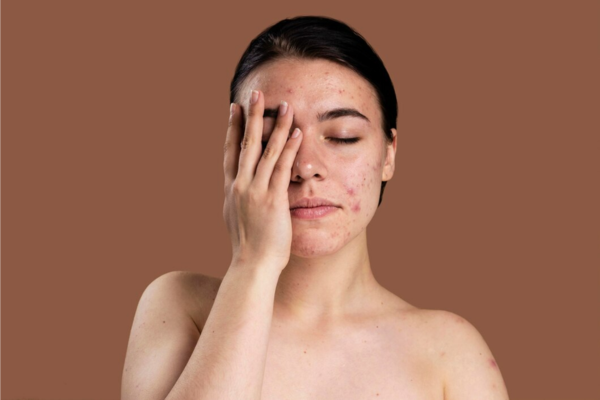Skin pigmentation issues and acne scars are two of the most common dermatological concerns affecting people of all ages and skin types. While pigmentation disorders cause dark spots and uneven skin tone, acne scars can leave behind long-lasting marks that affect confidence and skin health. At Dermalinks, led by the Best Dermatologist in Noida Extension and a trusted Skin Specialist in Gaur City, we offer advanced treatments to effectively address these concerns. In this article, we’ll explore the causes, prevention, and treatment options available for skin pigmentation and acne scars.
Causes of Skin Pigmentation
Melanin, the pigment that gives skin its color, can be generated in excess or dispersed unevenly, which can lead to skin pigmentation. Some common causes include:
- Sun Exposure: UV rays trigger melanin production, leading to sunspots, freckles, and hyperpigmentation.
- Hormonal Changes: Pregnancy, birth control pills, and medical conditions like melasma can cause pigmentation issues.
- Post-Inflammatory Hyperpigmentation (PIH): Dark spots left behind after acne, cuts, or burns.
- Aging: As we age, the skin’s ability to repair itself slows, causing dark spots to appear.
- Genetics: Some individuals are more prone to pigmentation issues due to their genetic makeup.
Causes of Acne Scars
Acne scars form when acne breakouts damage the deeper layers of the skin. Some common causes include:
- Inflammatory Acne: Severe acne, such as cystic or nodular acne, is more likely to leave scars.
- Picking or Popping Pimples: Touching or squeezing acne can increase inflammation and worsen scarring.
- Delayed Acne Treatment: Not treating acne in its early stages can lead to more severe breakouts and scarring.
- Genetic Factors: Some people are more prone to developing scars due to their skin’s healing response.
Prevention Tips for Skin Pigmentation and Acne Scars
- Use Sunscreen Daily: A broad-spectrum SPF 30+ sunscreen helps prevent sun-induced pigmentation and protects healing acne scars.
- Follow a Proper Skincare Routine: Cleansing, exfoliating, and moisturizing regularly keeps the skin healthy and prevents breakouts.
- Avoid Picking Acne: Let pimples heal naturally to reduce the risk of scarring.
- Use Skin-Lightening Ingredients: Products with Vitamin C, niacinamide, and kojic acid help reduce pigmentation.
- Stay Hydrated and Eat a Balanced Diet: Drinking plenty of water and consuming skin-friendly foods promote faster skin healing.

Treatment Options at Dermalinks
1. Q-Switch Laser Therapy
Q-Switch Laser targets deep pigmentation, melasma, and acne scars by breaking down excess melanin and stimulating collagen production.
2. Chemical Peels
Chemical peels exfoliate the skin, removing damaged layers and promoting new cell growth for a brighter complexion.
3. Microneedling with PRP
Microneedling stimulates skin regeneration, reducing acne scars and pigmentation. When combined with PRP (Platelet-Rich Plasma), it improves curing.
4. Laser Resurfacing
This advanced treatment reduces deep acne scars by promoting collagen remodelling and skin renewal.
5. Medical-Grade Skincare
Customized skincare regimens with active ingredients help maintain clear, even-toned skin.
In Last
Skin pigmentation and acne scars can be distressing, but with the right treatments and skincare routine, they can be effectively managed. At Dermalinks, our expert dermatologists provide personalized solutions tailored to your skin’s needs. If you’re struggling with pigmentation or acne scars, book a consultation today with the Best Dermatologist in Noida Extension to achieve flawless skin.
